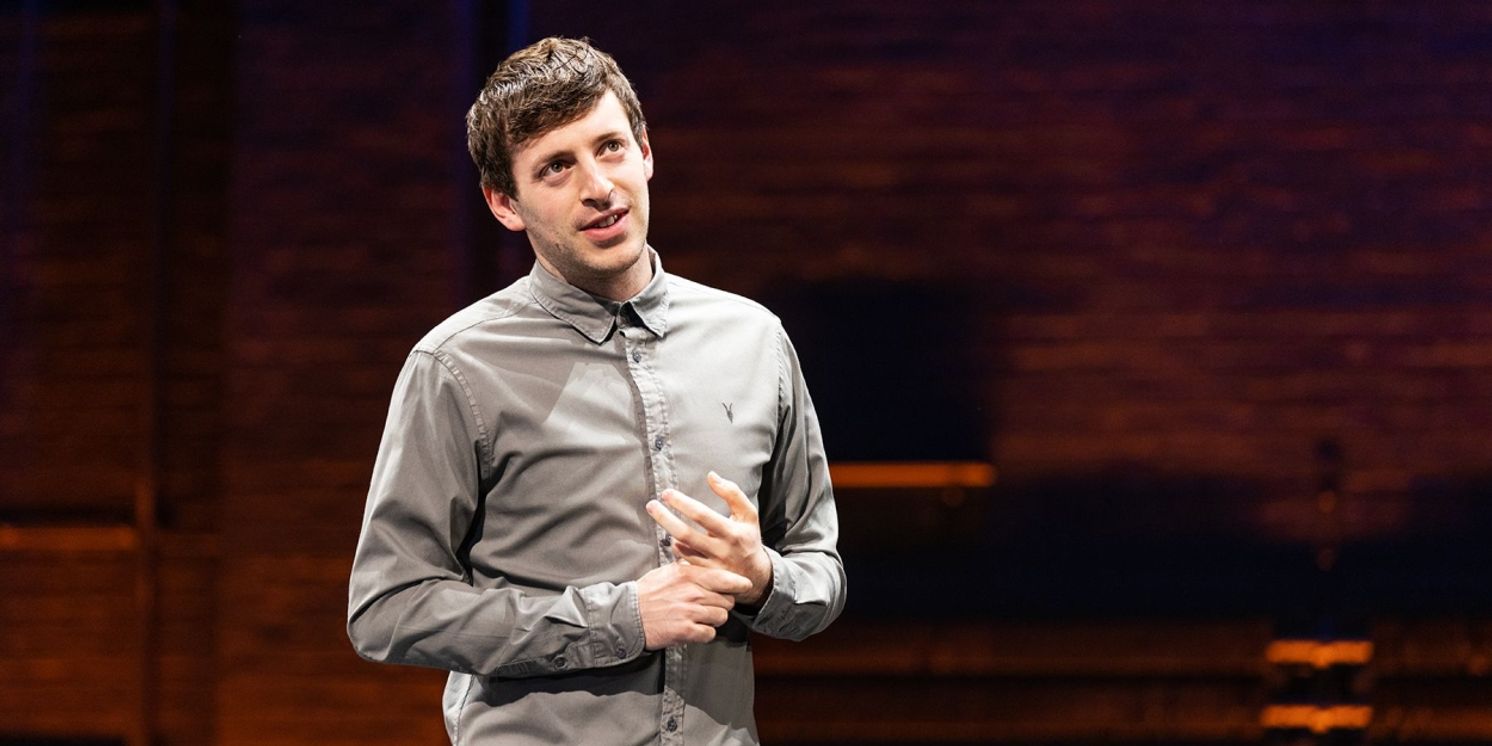Review: ALEX EDELMAN'S JUST FOR US at Steppenwolf Theatre
The fresh-off-Broadway comedy show runs through February 24..

White supremacists were one of the first groups to recognize the community-building power of what would eventually become the Internet. In 1984, white power "activists" created Liberty Net, which historian Kathleen Belew describes as "a series of code-word-accessed message boards that linked the... movement across the [United States] and beyond." Liberty Net allowed its users to spread propaganda materials, publish romantic personal ads, and plan assassination attempts. While now social media sites like Facebook and Twitter have allowed for a proliferation of progressive ideas and collaborative action, the task of eradicating white supremacy from our culture feels more daunting than ever, perhaps precisely because the movement has a generation-long headstart. What will it take to change the hearts and minds of racists and neo-Nazis whose ranks have greatly expanded over the last two to three election cycles? Is such change even possible? These questions form the unexpected foundation of comedian Alex Edelman's newest solo show JUST FOR US, a riotously hilarious and surprisingly heartfelt meditation on internet culture, Jewish identity, and the limits of radical empathy. It runs through February 25 at Steppenwolf's Downstairs Theater. Critic's recommendation: get your tickets immediately; the show will sell out its run just as it did on Broadway in 2023.
The show originates from Edelman's experiences online during the height of the last Presidential administration. Following the release of one of his BBC radio comedy shows ("like podcasts for the dying"), Edelman receives a series of threatening comments and messages from anti-Semites that amuse as much as they horrify. After coming across a Twitter invitation to a White Nationalist meeting in Queens, the standup comic infiltrates their ranks and faces off against the very people who wish him dead.
Edelman is an undoubtedly masterful comedian at the height of his powers. His repertoire runs an expansive gamut, from navigating fraught conversations with a neighbor of ambiguous political affiliation to the inevitable pitfalls of introducing Christmas to an Orthodox Jewish household. Even his more obscure jokes (he refers to his brother, an Israeli Winter Olympian, as "Shul Runnings") are set up in ways that feel accessible, as though he wants everyone in the audience to be in on the punchline even if they have to turn to their neighbor for help understanding the references. But perhaps that kind of communal meaning-making is precisely the point. Edelman especially excels, though, at two performance techniques in particular. The first is the art of the callback. He punctuates his story of an evening spent behind enemy lines with anecdotes from his childhood growing up in Boston or living across the country in New York and Los Angeles. The stories are always funny (the Edelman children unironically shout "Baruch Hashem!" when they think Santa has visited their house), but viewers may initially wonder where all these meandering paths could lead. Which makes it all the more delightful when a detail casually dropped earlier in the show comes up again with added force and often a different emotional affect. A question that starts off as a tongue-in-cheek way to avoid difficult conversations ("Can you believe it?") becomes a heartbreaking admission just before the lights go out. Humorous observations about Koko the gorilla and Robin Williams initially appear to be a warm-up act before finally landing 90 minutes later as one of Edelman's central creative metaphors. Edelman creates familiarity only to defamiliarize his audience, fostering a sense of intimacy and even productive discomfort.
And it is in these moments that Edelman showcases his other technique that drives the show and elevates it to something beyond a typical comedy special. He keeps the jokes rolling one after another in rapid succession, roiling the audience into applause and cheers until he finally forces them to confront the tension he's been cleverly building behind the humor the entire time. When he reveals the perhaps inevitable conclusion to his story, his face drops, his tone shifts, and the ensuing silence becomes so earsplitting that no one dares to make a sound. In these moments, one begins to get a sense of the anger simmering beneath Edelman's charming exterior that led him to create this show in the first place. It's an anger that stems from his confrontation with white supremacists as well as a sense of shame from having failed to embrace his Jewish identity as much as he would like. More daringly, he forces audiences to face their own shame and embarrassment. We may want to applaud ourselves for being enlightened progressives, but that self-congratulatory attitude ultimately fails to accomplish much in the face of newly emboldened hatred and violence. In other words, while we may pride ourselves on our empathy for others, how far do we allow that empathy to go? And what do we do when that empathy isn't enough to affect the change we want to see in the world?
JUST FOR US doesn't claim to know the answers to these questions. It's not a spoiler to say that no one leaves that White Nationalist meeting with a sudden determination to burn their copies of The Turner Diaries. Even Edelman questions what the point of the whole exercise was, what the point is in extending empathy to the most deplorable among us. Then again, perhaps these questions are beside the point. For Edelman, empathy is not a means to an end but an end in and of itself, an assertion of our collective humanity in the face of that which would make us inhuman.
It's the sign of a brilliant artist that he can bring us to this humbling realization while leaving us laughing as we walk out into the night.
Photo credit: Matthew Murphy
Reader Reviews

Videos

